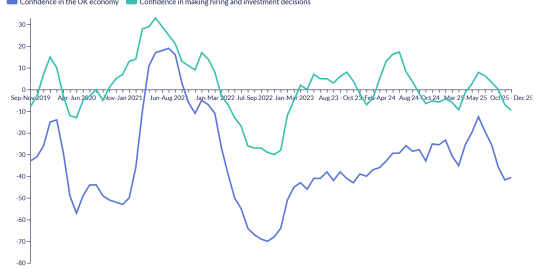- Drop in real pay forecast for UK over next four years
- Decade of rising living standards comes to an end
- Inflation at 10-year high and outstripping wage increases
Rising costs of living and weak salary growth are eroding the spending power of UK employees - a pattern set to continue for the forseeable future, according to a new study by global management consultancy Hay Group.
With median salary growth forecast by Hay Group to reach just 2.4 per cent this year, and inflation rising to 5.3 per cent according to the Retail Price Index (RPI), pay is falling in real terms for the average British worker for the first time in a decade.
Hay Group predicts the outlook for the next four years is a bleak one, with median pay increases likely to remain below inflation.
The forecasts represent a sharp turnaround after consistent pay increases over the last 10 years, amounting to a 37 per cent rise in median base salaries, or 9.5 per cent in real terms when taking RPI into account.
The study is based on salary data for one million UK employees in 600 organisations, taken from Hay Group’s PayNet, the world’s most comprehensive database of pay and benefits.
Steve Paola, Reward Information Consultant at Hay Group, comments: “After a decade of real pay boom, recession and continuing uncertainty are having a negative impact on real pay for the UK workforce. It may be a number of years before we see living standards rising at pre-crisis levels.”
Boom Years: Strongest Growth at the Top and Bottom
The Hay Group figures paint a picture of steady real pay growth during the boom years.
Even when a 27.5 per cent total RPI rate across the period is taken into account, median pay rose by 9.5 per cent in real terms over the past 10 years in the UK.
Interestingly, the highest and very lowest earners benefited from the greatest real pay rises during the last decade.
The median base salary increase was 5 per cent greater for senior management than the overall average, as companies enjoyed sustained growth during the so-called ‘NICE’ (non-inflationary constant expansion) decade.
Steve Paola comments: “People at this level are ultimately accountable for bottom line performance. As firms enjoyed steadily growing profits throughout most of the noughties, senior managers were rewarded accordingly.”
Meanwhile, those at the other end of the pay scale experienced pay inflation at an impressive 23 per cent above the average, as the National Minimum Wage rose consistently from £3.70 p/h in 2000 to £5.93 p/h in 2010 - a rise of some 60 per cent.
Feeling the Pinch
However, the current picture is much less rosy, and looks set to remain that way according to Hay Group’s data.
The UK workforce is already experiencing a fall in real pay, as the cost of living increases at a faster rate than salaries.
The RPI inflation rate was at its highest for 10 years in April 2010 (5.3 per cent), while median salary growth stands at just 2.4 per cent according to Hay Group, eroding employee spending power by almost 3 per cent.
Four-Year Outlook
The outlook is equally pessimistic. Forecasts from the Office of National Statistics put RPI inflation at 3.23 per cent on average for the next four years, peaking in 2014 at 3.5 per cent.
Hay Group sees little prospect of salary increases rising above current levels during the same period, resulting in a steady fall in UK standards of living over the next four years at least.
Economic conditions - faltering GDP growth, unemployment set to rise in the short-term and continuing uncertainty – look set to continue to dampen salary inflation, and a period of public sector pay austerity looms. In the emergency Budget Chancellor George Osborne raised VAT to 20%, which will also squeeze employees purses.
Steve Paola comments: “Having been wounded in the recession, firms are naturally maintaining a tight rein on salaries and will continue to exercise cost constraint for the next few years.
“There has also been a cultural shift, reward can represent anywhere up to 70 per cent of a company’s total costs, it is now a top management issue and under greater scrutiny.
“Overall, slow growth means companies have less to pay staff which combined with high unemployment will drive down real wages for the foreseeable future.”




